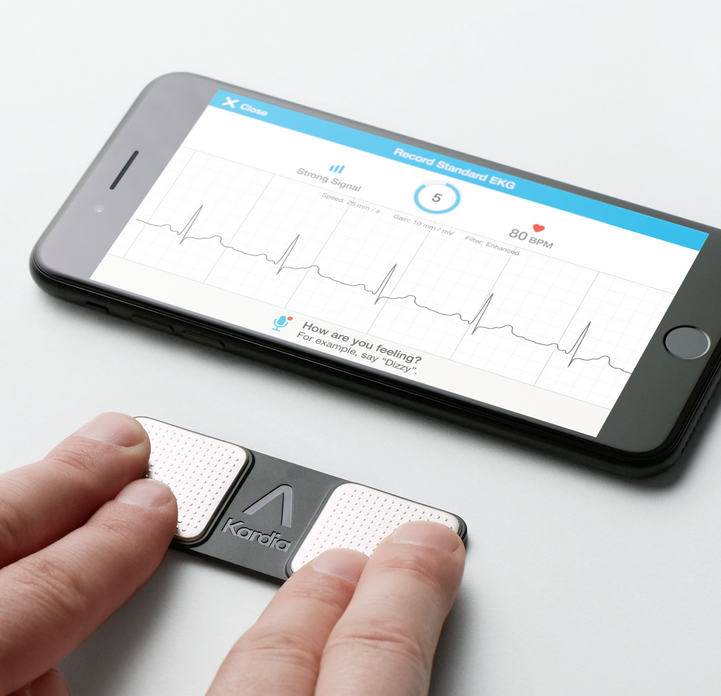Ruthless and unbiased, heart disease kills 610,000 people per year in the United States, amounting to one out of every four deaths in the country. A leading cause of death across both genders, the CDC estimates that over half of the nation’s deaths can be attributed to heart disease. Doctors say early detection is key, by the time significant warning signs like chest pain and shortness of breath are detectable, it might already be too late. Unfortunately, for many Americans, a trip to the doctor’s office can be complicated and costly. But what if an EKG could fit inside your wallet? A new mobile EKG device can monitor cardiac health and track the early warning signs of hearth disease and stroke. Mobile Monitoring AliveCor, the makers behind Kardia, a mobile, pocket-sized EKG monitor, believe they’ve found a solution. A little smaller than a business card, the Kardia comes outfitted with two metal plates designed to receive basic information about the user’s heart, including heart rate, blood pressure and – most importantly – atrial fibrillation. Users simply place their fingers on the device and wait for the data to be transmitted to Kardia’s mobile app. The focus on atrial fibrillation is significant because changes in this particular data set are often an early warning signs of stroke. Most hospital-grade EKGs measure 12 different aspects of the heartbeat, but focusing on atrial fibrillation, AliveCor was able to shrink their mobile electrocardiogram down to a gadget that easily fits in the palm of your hand. “[It is] the most common arrhythmia, the one that we need to detect, doesn’t need all 12 EKG leads,” AliveCor CEO Vic Gundotra tells Wired. “And it’s not invasive at all, it’s just like brushing your teeth every day.” Comprehensive Reports The Kardia...

